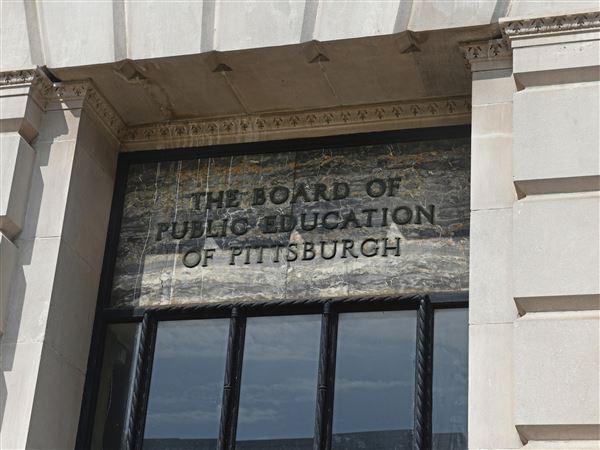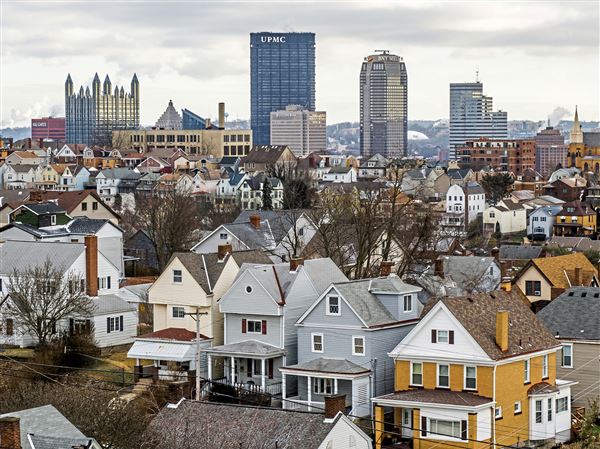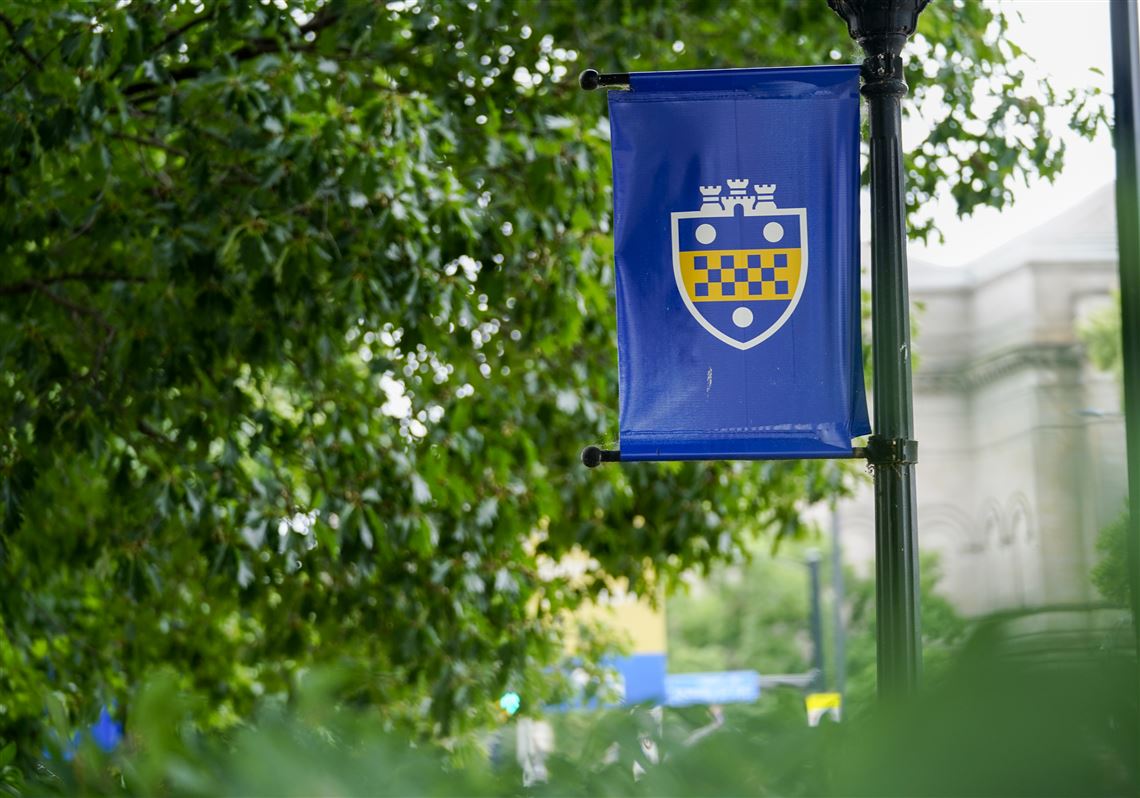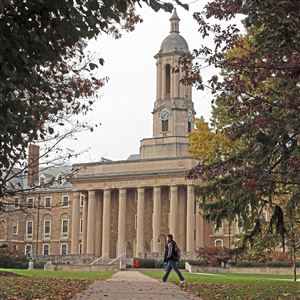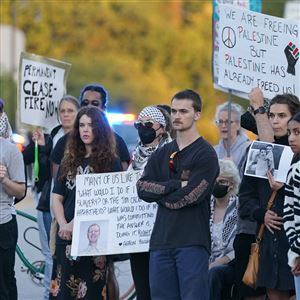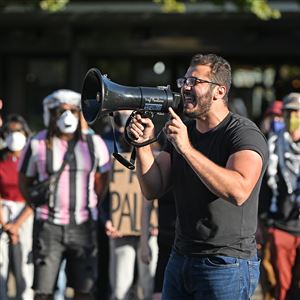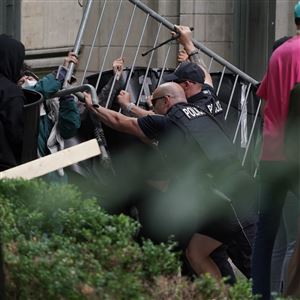The University of Pittsburgh and Penn State saw their free speech ratings dramatically drop in a new report.
Both public universities received “below average” marks for their free speech climates in the 2025 report released by the Foundation for Individual Rights and Expression on Thursday.
The report ranked the free speech climates of more than 250 American colleges and universities based on a survey of over 58,000 students nationwide.
Pitt placed 208th of 251 schools for its free speech atmosphere, while Penn State ranked 228th.
That’s a significant decline from last year’s rankings, when Pitt ranked 130th of 248 schools and had an “average” speech climate. Penn State, meanwhile, ranked 189th last year and received “below average” marks.
The universities’ souring grades come in spite of their respective leaders’ efforts to foster free speech at the institutions, which are bound by the First Amendment.
Both Pitt Chancellor Joan Gabel and Penn State President Neeli Bendapudi have publicly stressed the importance of free expression, and one of Ms. Gabel’s first moves as chancellor was to join the Campus Call for Free Expression, a national group of university leaders aiming to promote free expression on college campuses.
Other regional universities included in the FIRE report were Carnegie Mellon University — which ranked 41st and earned a “slightly above average” grade — and Duquesne University, which placed 222nd and received a “below average” rating. That’s an improvement from Duquesne’s score last year, when it joined the likes of Harvard University and the University of Pennsylvania in FIRE’s 10 “worst colleges for free speech” list.
Harvard and Penn again scored poorly in the annual report. Those Ivy League institutions were among the five worst colleges for free speech, along with Columbia University, New York University and Barnard College.
The University of Virginia, Michigan Technological University and Florida State University had the healthiest speech climates in 2024.
Sean Stevens, FIRE’s chief research adviser, said institutions earn more positive scores when their administrators defend free speech and clearly respond to speech disruption.
“We’re not naive; controversy is going to happen,” Mr. Stevens told the Post-Gazette. “It’s how [administrators] handle it and how they respond to it.”
FIRE’s report is based on an extensive survey of college undergraduates, who were asked questions about self-censorship, tolerance for controversial campus speakers, and campus discussion of hot topics such as the Israel-Hamas War, abortion and race.
Students at Pitt, Penn State, Duquesne and CMU all reported self-censoring in class to receive good grades or avoid tension and discomfort. Two in five students at Pitt, Penn State and CMU said they self-censor on campus at least once a month, while more than half of Duquesne students reported doing so.
Liberal students outnumber conservative students four to one at Pitt and CMU, and three to one at Duquesne, according to the report. At Penn State, political ideology is more balanced: For every conservative student, there is roughly one liberal student.
Students’ thoughts on Palestine, encampments
FIRE’s report also delved into students’ views on the Israel-Hamas War as tensions continue on college campuses.
Overall, 25% of the 58,000 students surveyed said that Israel was more responsible than Hamas for the 2023 outbreak of violence in the Middle East, and 22% said Hamas was more responsible. Participants could also answer “both equally” or “don’t know.”
Regionally, 29% of Pitt students, 26% of Duquesne students, 19% of CMU students and 15% of Penn State students said Israel was more responsible.
When asked if they sympathized more with the Israelis or Palestinians in the conflict, 10% of all students answered Israelis, 40% answered Palestinians and 16% said both equally. Students could also answer “neither” or “don’t know.”
Here’s where students’ sympathies lie at regional schools:
- Duquesne: 4% sympathized more with Israelis, 47% with Palestinians, 13% both equally
- Pitt: 8% sympathized more with Israelis, 54% with Palestinians, 14% both equally
- CMU: 8% sympathized more with Israelis, 40% with Palestinians, 24% both equally
- Penn State: 12% sympathized more with Israelis, 28% with Palestinians, 21% both equally
Surveyed students were also posed questions about whether they believed controversial speakers should be banned from campus.
At Duquesne, 75% of students said the university should probably or definitely ban a speaker from campus who has said, “Collateral damage in Gaza is justified for the sake of Israeli security.” This pro-censorship sentiment was shared by 66% of Pitt students, 54% of Penn State students and 53% of CMU students.
Meanwhile, 41% of Duquesne students said the Catholic school should probably or definitely ban a speaker from campus who has said, “From the river to the sea, Palestine will be free.” That pro-censorship sentiment was shared by 35% of Penn Staters, 30% of CMU students and 27% of Pitt students.
In a separate survey also published Thursday, FIRE asked 3,000 students about encampments and protests on their campuses. Nearly three-quarters of students said it is rarely acceptable to establish a campus encampment, and almost 60% said it was rarely acceptable to occupy university buildings.
Over half of the surveyed students said they feel uncomfortable discussing the conflict with their peers.
More than a quarter of Jewish students surveyed said they feel very or somewhat unsafe on their campuses, and nearly half of Muslim students said police responses to encampments made them feel very or somewhat unsafe.
First Published: September 5, 2024, 9:00 a.m.
Updated: September 6, 2024, 3:31 p.m.
